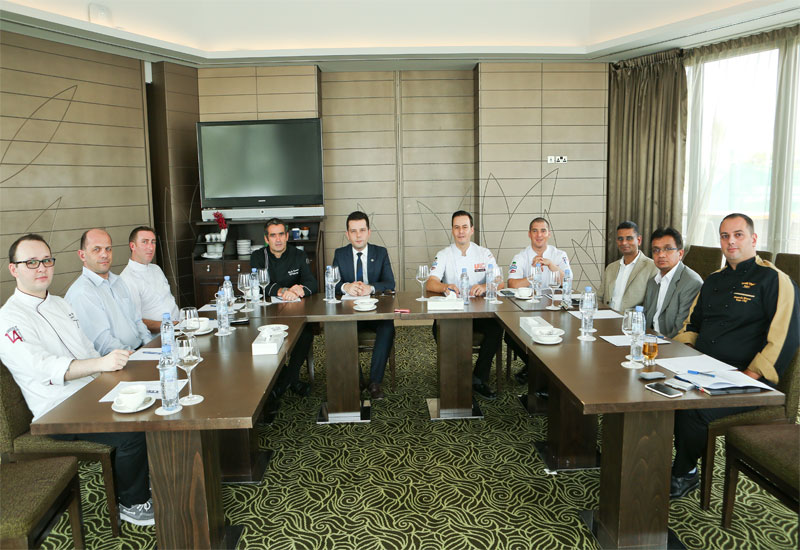Antonello Manca, executive chef, Dusit Thani Dubai: I think receivers should be part of the culinary team. Maybe we need to turn around and say we should take this under our wing, because it belongs to the kitchen, it doesn’t belong to accounts. Plus it’s very important that we try to minimise the time [of the products] outside, having the receiving as close as possible to the gates.
Muhammad Khalid Saeed, food health inspection officer, Dubai Municipality: From the municipality perspective, Dubai is importing 90-95% food from outside. This means we are exposed to all the problems around us. We are pushing the hospitality industry to implement a proper supplier approval system, which is the weakest part right now.
We have the middleman, ie the trading company, where the food safety standards are lower than the hospitality industry. The problem is whether they have the traceability system in place, whether they will give you the recall notification, and so on.

| Advertisement |
We are asking trading companies to look into these. You cannot control things with the receiving alone — most of the receivers are not properly trained.
Sunjeh Raja, director and CEO, International Centre for Culinary Arts (ICCA): As trainers, manufacturers do a good job and the end-user is completely strong. The weakest link is the distributor… he’s a trader and he’s only trying to trade.
Three years back we were sending our student to the Norwegian Cruise Lines and we were surprised they were using trained chefs from us to be at receiving stations. We learned that it all depends on training, it’s not just about filling forms.
It’s about showing the paperwork is sound, but sometimes the spirit lacks. The manufacturer sends the product out with great intent and content, but it changes hands. So it’s no use the kitchen being HACCP-compliant when something has already gone wrong.
Jason Pettit, brand chef, the noodle house, Jumeirah Restaurants LLC: It would be nice if traders had a passion for what they were doing. They don’t understand the products so they don’t invest the time and energy for training. When you see the delivery drivers, you can’t believe they’re delivering food.
Triemer: That’s why it’s very important to have those supplier audits because then you realise and cut them out. Some suppliers are really, really good and even the delivery men are wearing hairnets and complying with everything. But there are others who don’t do it.
Pettit: We’re lobbying the drivers and suppliers because we want the food to be the best quality when it comes in. The guys who do the receiving are starting their journey in catering. So you can’t expect them to have the knowledge and passion that you’ve got.
Unfortunately for some of us, we don’t have massive budgets of staff so we’re relying on suppliers to play their part and send good quality, well-packaged products ... they get audited by the Jumeirah corporate side and we’re the end user. The flip side is that if you reject a delivery you might not get it for two days.
That’s one of the pressure points. Chefs think, maybe it’s not that bad, sign it and take it. Drivers are not supposed to deliver between 12pm and 2:30pm because that’s peak lunch trade. One o’clock and they’ll rock up.
Article continues on next page ...









 Search our database of more than 2,700 industry companies
Search our database of more than 2,700 industry companies









